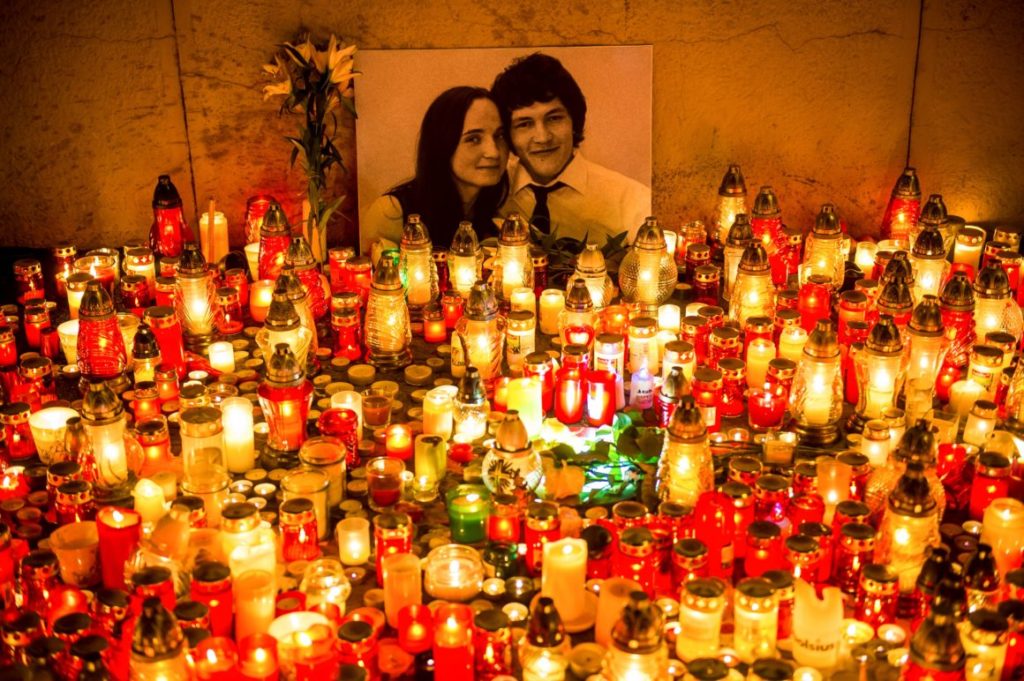It’s the corruption, stupid!
The EU’s role is more important than ever

Source of the photo: Politico
The Russian political activist Alexei Navalny has published a hilarious video a couple of weeks ago, saying how they accidentally discovered an Instagram profile of a well-known gold digger, which contained her guide about seducing oligarchs and that one of Russia’s richest businessman bribed the deputy prime minister and meddled into the American presidential elections in 2016. I really encourage everyone to spend twenty minutes to listen to the whole story, because it is one of the most absurd political comedies (tragedies?) ever. One just can’t decide to laugh or to cry. Then sighs with relief. Russia is Russia, after all.
But the problem is that we are not that far from these playbooks in Europe either. We debate about the rise of populism, backslide of the rule of law, declining trust in politics, migration, turf war between European institutions and national governments, reform of the Eurozone and so on. But we don’t debate enough on how harmful corruption can be. Of course, I don’t question why. The reason is so obvious.
The Slovak journalist Ján Kuciak was murdered this week. He has been investigating the links between the Italian mafia and politics, including Prime Minister Robert Fico’s advisor. His Maltese colleague, Daphne Caruana Galizia was killed three months ago. She had also been covering corruption issues, like the political elites’ involvement in offshore businesses.
I truly wish that the sacrifice of these brave people won’t go in vain. European integration has already made a very good job in the fight against corruption. Even if many in Bulgaria and Romania would say that the EU has been using a double standard for still not letting them joining Schengen, but they do owe a lot for those accession criterias. However, keeping someone out of the club is always easier than to make the member keep the rules, once they are in. The European Public Prosecutor Office might solve those problems that the OLAF can’t, by not having the appropriate mandate for that. But only 20 member states joined the initiative. It is a million-euro question why the others decided to stay away from the initiative.
Some stories from Hungary, one of the fiercest critic of the Prosecutor’s Office, might help to answer this tricky question. The OLAF has recently published the results of its investigation, claiming that the son-in-law of Prime Minister Viktor got a privileged treatment at public procurements financed by EU funds. The government tries to tackle the question as a taboo. Or, they put the blame on European institutions for meddling into the election campaign. When German MEP Ingeborg Gräßle called for a police investigation, the chief of staff of the prime minister, János Lázár replied in a very curious manner. “A correct European Parliament member stays nicely quiet in this situation, and says her opinion after the 8th of April”, he said, implying that upcoming parliamentary election, where the ruling party Fidesz is expected to have a two-thirds majority.
Last weekend something interesting has happened in Hungary. A barely known person has been elected with 16 percent advantage to be the major of one of the most pro-Fidesz towns (coincidentally the hometown of Minister Lázár). He was supported by all the opposition parties and arrived with a very clear message. He shares all the conservative values of the Fidesz, like the majority of the Hungarian society, but he had enough of corruption.
Institutions can’t be made silent like individuals. Therefore, the role of EU institutions is crucial in the fight against corruption. And it is also very beneficial for the reputation of the integration itself. Because people are indeed thankful for the EU to make their life better. This is the best way to bridge the gap between institutions and voters.
